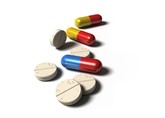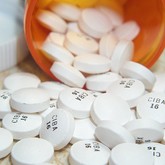Guidelines
TGA proposes changes to biologicals regulations
Australia’s drug regulatory agency, the Therapeutic Goods Administration (TGA) announced on 20 April 2018 the release of proposed amendments to its biologicals regulations that are set to take effect on 1 July 2018.
Regulation of biologicals in Colombia
Since the introduction of Decree 1782 Colombia has been moving towards a new regulatory landscape for biologicals (productos bioterapéuticos) and similar biotherapeutic products (productos bioterapéuticos similares) in the country [1].
EMA opens public consultation on GMP non-compliance template
The European Medicines Agency (EMA) announced on 3 April 2018 that it had opened a public consultation concerning the European Union (EU) template for good manufacturing practice (GMP) non-compliance statement.
FDA releases 52 new and revised bioequivalence guidelines for generic drugs
As part of its ongoing efforts to provide product-specific guidance for generics makers the US Food and Drug Administration (FDA) has again released several new and revised bioequivalence documents. The agency announced on 1 February 2018 that it had released 35 new draft guidance documents and 22 revisions to guidance documents on bioequivalence requirements for the development of generics containing 49 different active ingredients.
FDA issues guidance on co-crystals and impurities
The US Food and Drug Administration has finalized new guidance establishing co-crystals as a drug product intermediate. The agency has also released new information on when to submit elemental impurity data, acknowledging that new guidelines on reporting elemental impurities had slowed approvals in January 2018.
China adopts ICH guidelines and collaborates with UK
As of 1 February 2018, the China Food and Drug Administration (CFDA) will be adopting five safety and regulatory guidelines from the International Council for Harmonisation of Technical Requirements for Pharmaceuticals for Human Use (ICH). China became the eighth member of ICH in June 2017, which marked a significant expansion of ICH’s impact and aim to promote global public health.
FDA agrees to meet GAO demands on revised guidance for complex generics
The US Government Accountability Office (GAO) released a report on 16 January 2018, in which it stated that the US Food and Drug Administration (FDA) should release plans to issue or revise guidance for complex generic drugs. FDA made an official response in which it laid out its plans for the future which address many of the GAO's concerns.
China FDA issues draft guidance on drug review and approval transparency
China Food and Drug Administration (CFDA) announced on 16 January 2018 that it had issued draft guidance on the public disclosure of information related to its review and approval of drug applications.
EMA regulatory guidance update to prepare for Brexit
In preparation for the UK’s withdrawal from the European Union (EU), set to take place on 29 March 2019, the European Medicines Agency (EMA) and the European Commission have issued regulatory guidance to pharmaceutical companies. The EU wants to ensure that pharmaceutical companies plan for Brexit to avoid any impact on the continuous supply of medicines within the EU.
FDA updates its list of drugs without generics
The US Food and Drug Administration (FDA) announced in December 2017 that it had updated its list of drugs without generics.












